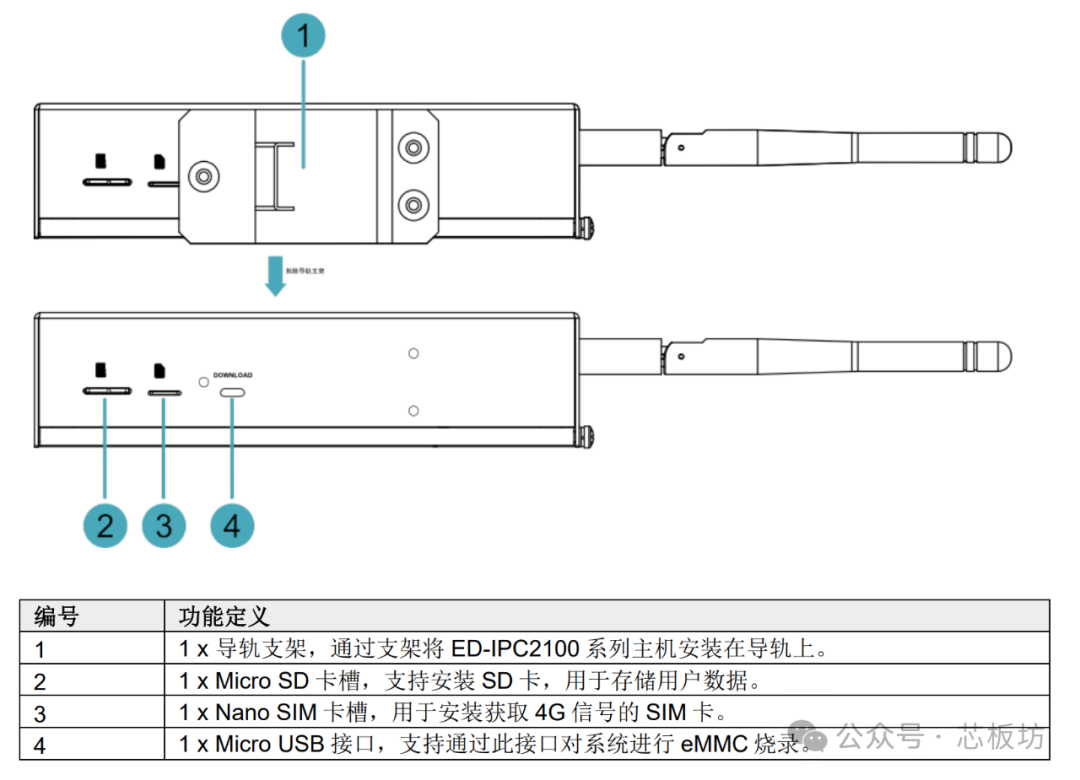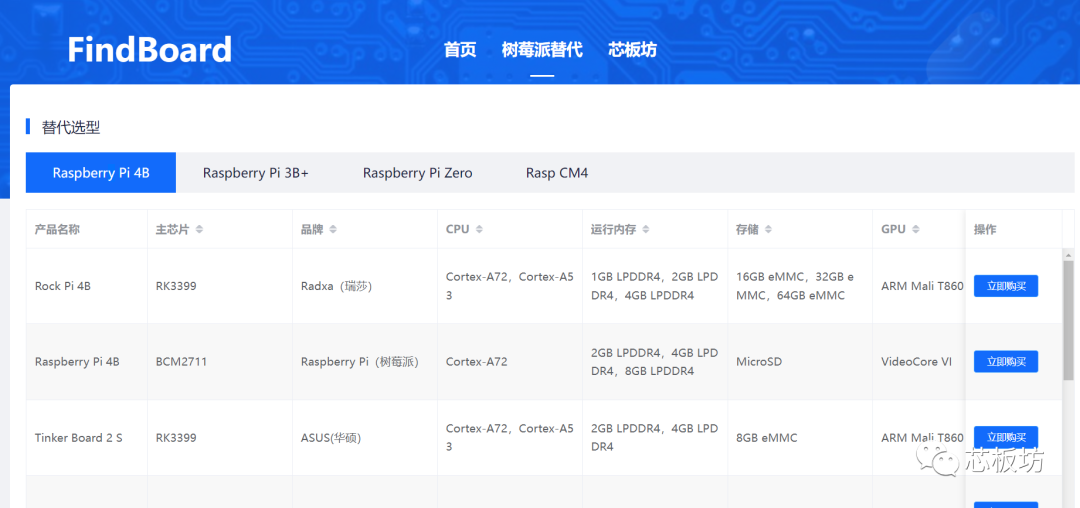Today, let’s introduce an industrial computer based on Raspberry Pi CM4.
From EDATEC’s ED-IPC2100 series
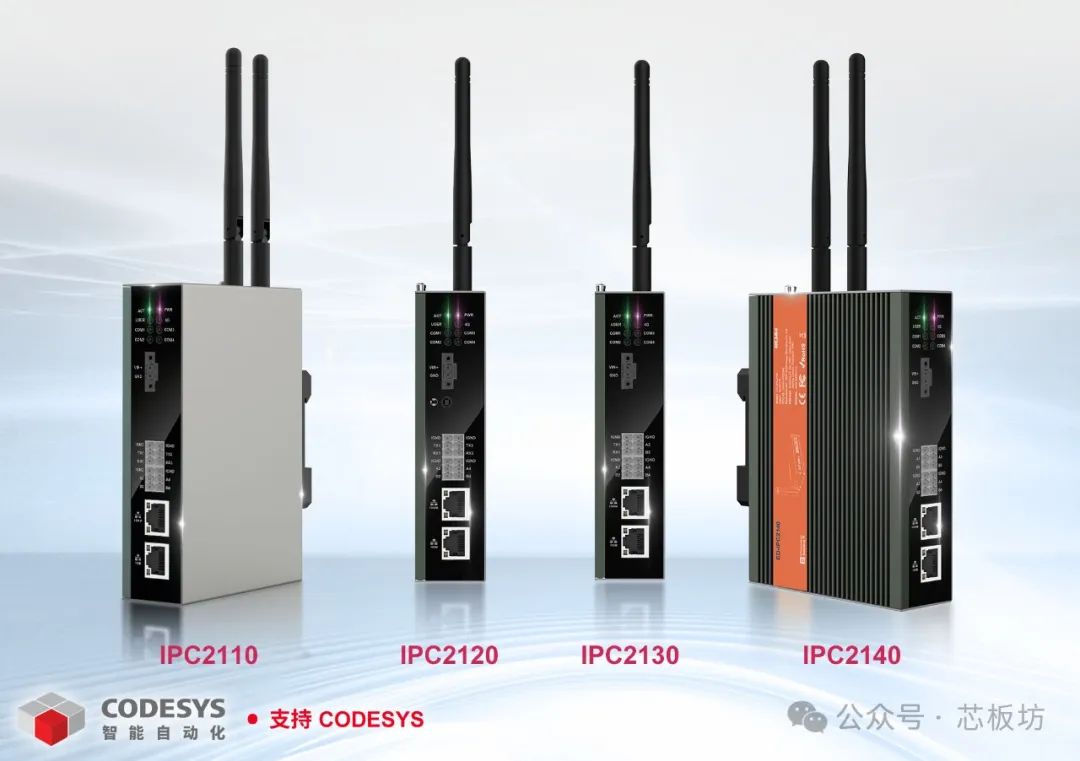
EDATEC might be unfamiliar to you; this company has a prestigious background.
EDATEC, in Chinese, is Shanghai Jingheng (/héng/) Electronic Technology Co., Ltd.
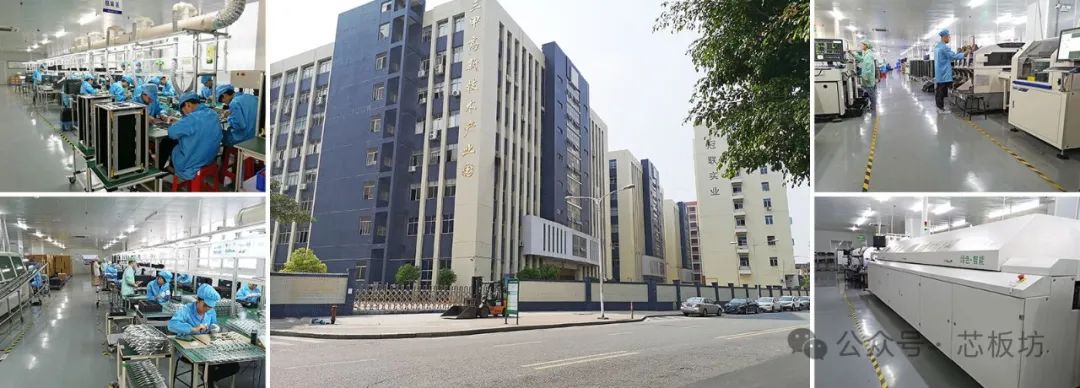
It is a wholly-owned subsidiary of Premier Farnell Group, which operates independently.

It was also the previous manufacturer of Raspberry Pi in ChinaElement14, established by key executives from Element14 in 2017, with the general manager being the former general manager of Premier Farnell.
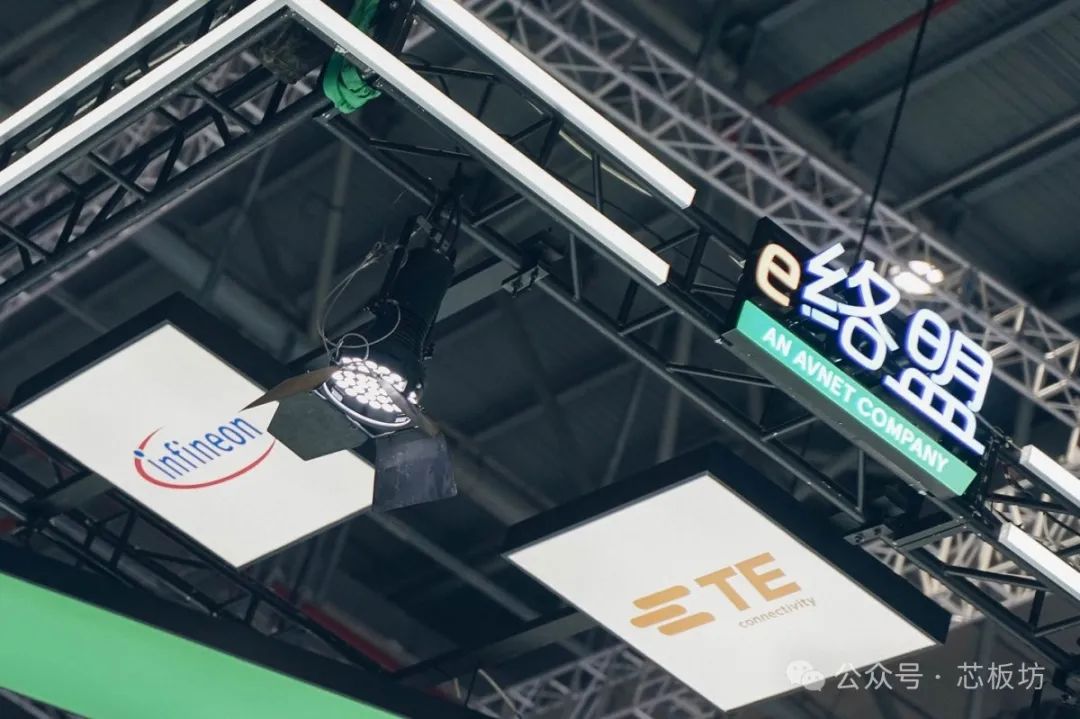
Element14 produced Raspberry Pi models 1, 2, and 3, as well as various accessories.
Shanghai Jingheng was established in 2017, and in 2018, it was designated by Raspberry Pi as a global official design service partner, providing industrial computer design and manufacturing services for Raspberry Pi worldwide.

This means Shanghai Jingheng is the original team from Element14, starting a new venture dedicated to manufacturing various Raspberry Pi products, and has received official certification from Raspberry Pi. With the backing of Raspberry Pi, the quality of EDATEC is undoubtedly impressive.
Now, let’s take a look at how this industrial computer performs.
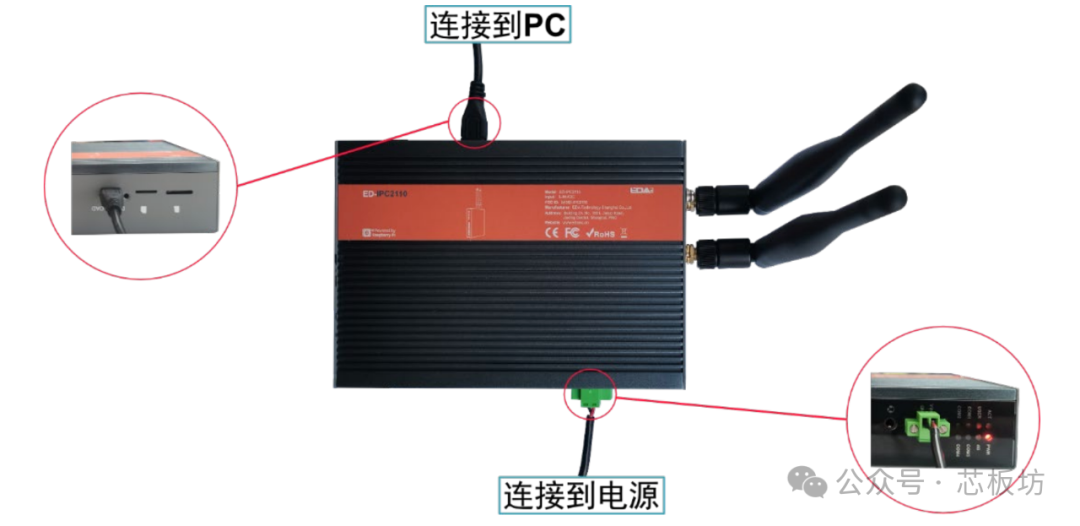
As an industrial-grade computer, the primary requirement is stability. The IPC2110 I have can operate in temperatures ranging from -25℃~60℃. It can also function in 20%~90% humidity.
It has passed various certifications.
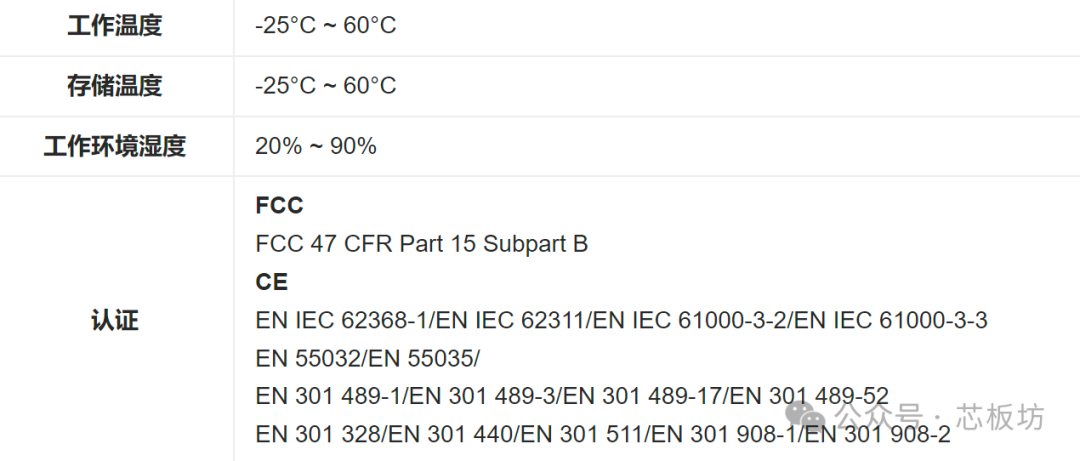
The exterior features a metal casing and aluminum heat sinks. Not only does it facilitate heat dissipation, but the casing is also very sturdy, making it difficult to damage internal circuits.
The power input uses a 3.5mm pitch Phoenix connector with screw terminals to provide stable current input, preventing unexpected power outages.
The power supports 9~36V wide voltage input, with reverse polarity, over-voltage, and over-current protection, avoiding potential circuit damage.
This IPC2110 has two RS485 interfaces and two RS232 interfaces, all using 3.5mm pitch Phoenix connectors, equipped with isolation protection, electrostatic protection, and surge protection.
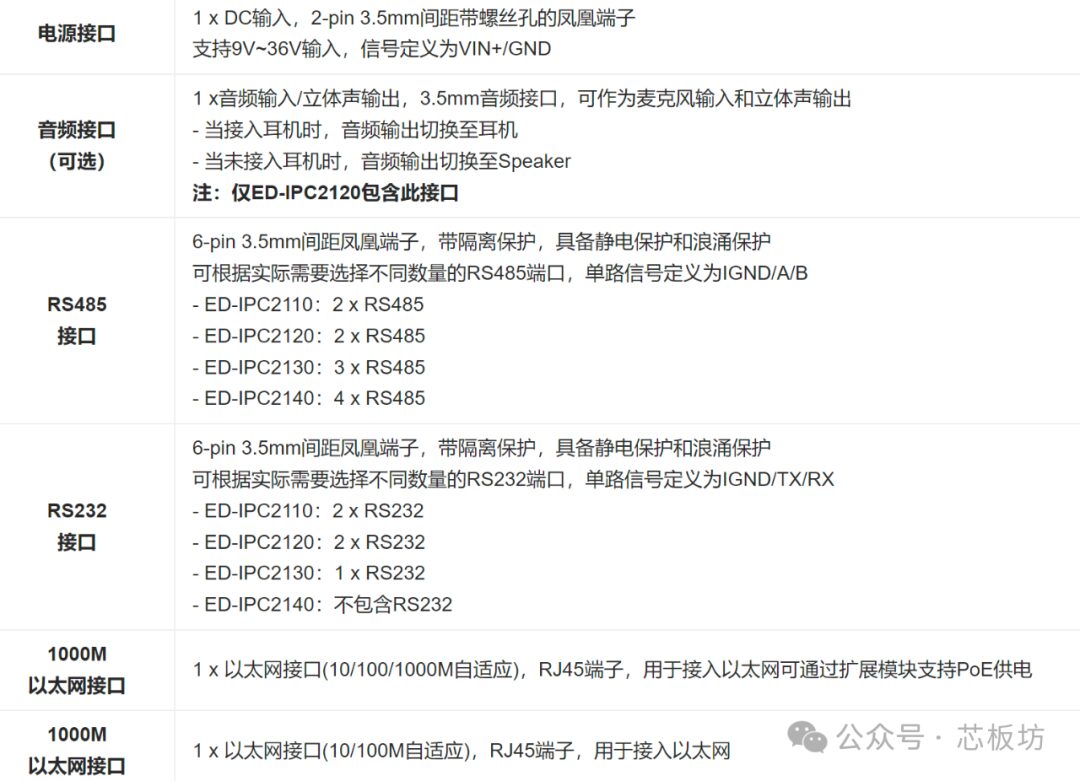
EDATEC offers us four models to choose from, and you can select based on your needs.

Next to it is a Gigabit Ethernet port and a Fast Ethernet port. The Gigabit Ethernet port supports PoE power supply.
On the left, there are many indicator lights to display the device’s operational status.

On the side, there is a reset hole, two USB2.0 interfaces, and an HDMI interface.
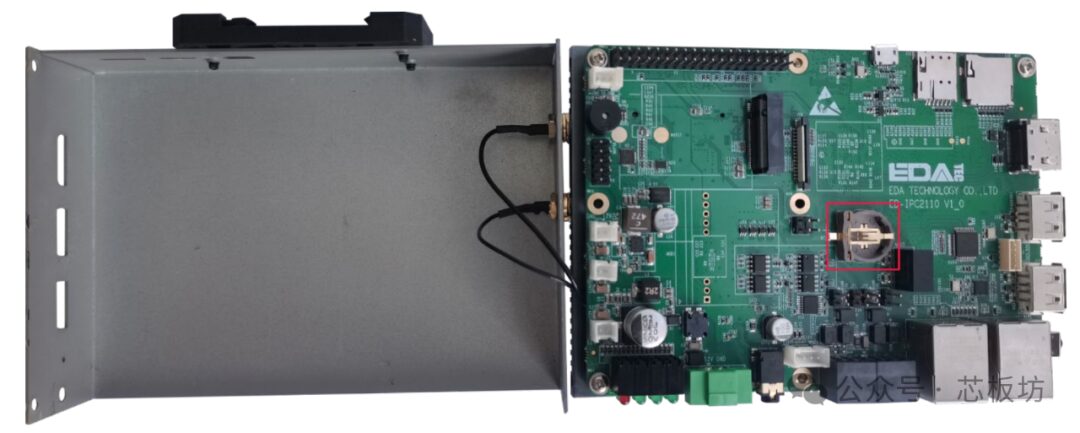
On the other side, there are two antenna interfaces, one for Wi-Fi and Bluetooth, and another for 4G network.
This can also be equipped with a 4G module to use 4G networks.
There is also a grounding screw for the casing, which is recommended to be used during operation.
The back features a rail bracket, making it easy to install on a rail.
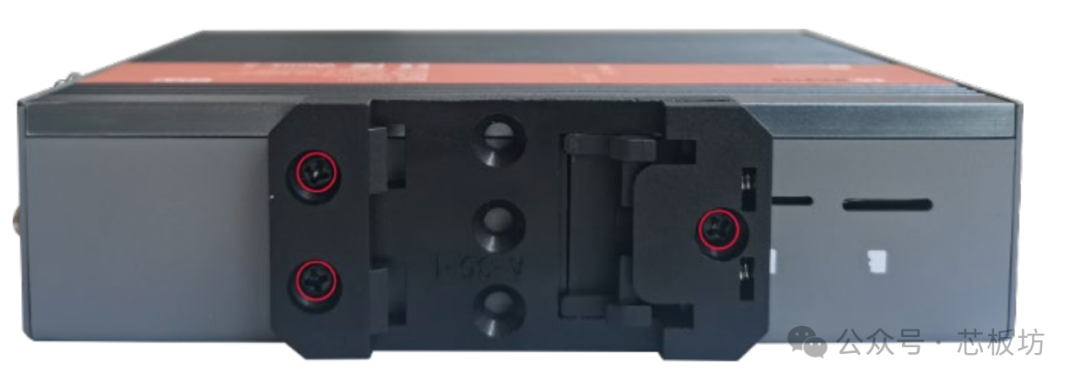
Behind the rail bracket, there is a Micro USB for burning eMMC. There is also a Nano SIM card slot that is partially blocked; installing the SIM card and burning the eMMC requires removing the rail bracket, which is something to note.
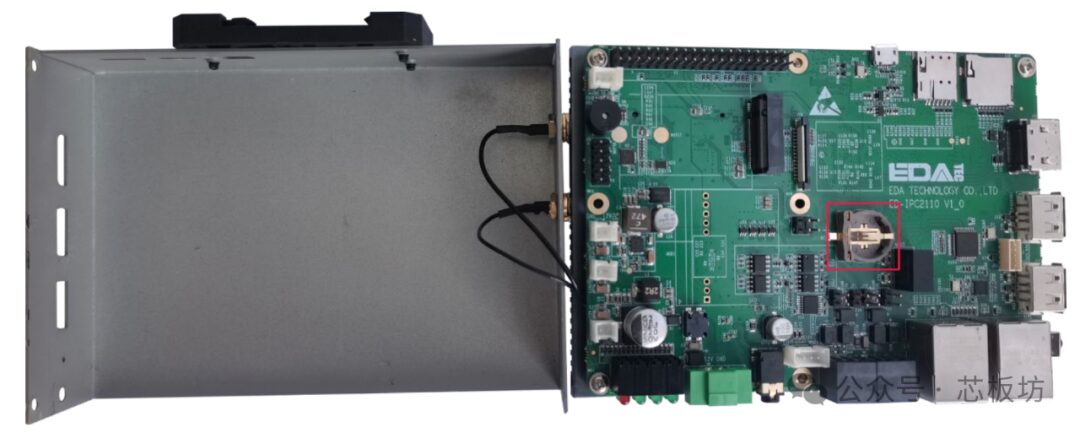
Inside, there is a Raspberry Pi 40Pin interface, a 12V1A power output, a 5V1A power output, an M.2 B-Key interface for optional SSD installation, and an RTC battery holder. There are also USB2.0 external interfaces.
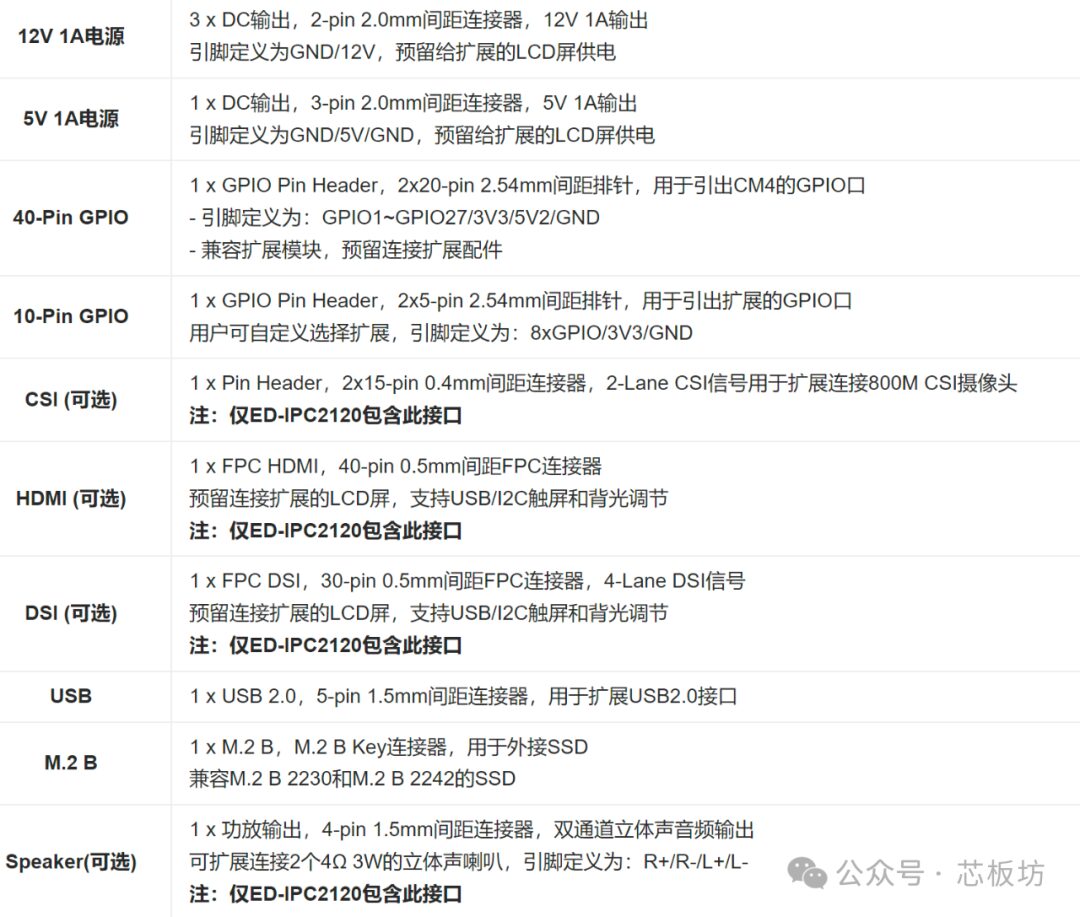
If you purchase the IPC2120, you will have even more interfaces available. For example, MIPI DSI, MIPI CSI interfaces, speaker interface, and another HDMI ribbon interface.
Configurations range from 1GB to 8GB LPDDR4 memory, with options for 8GB, 16GB, or 32GB eMMC.
It is consistent with Raspberry Pi CM4.
From the system block diagram, it can be seen that the 4G module and the Fast Ethernet port are both connected via USB 2.0 interfaces. If all are plugged in, congestion and lag may occur.
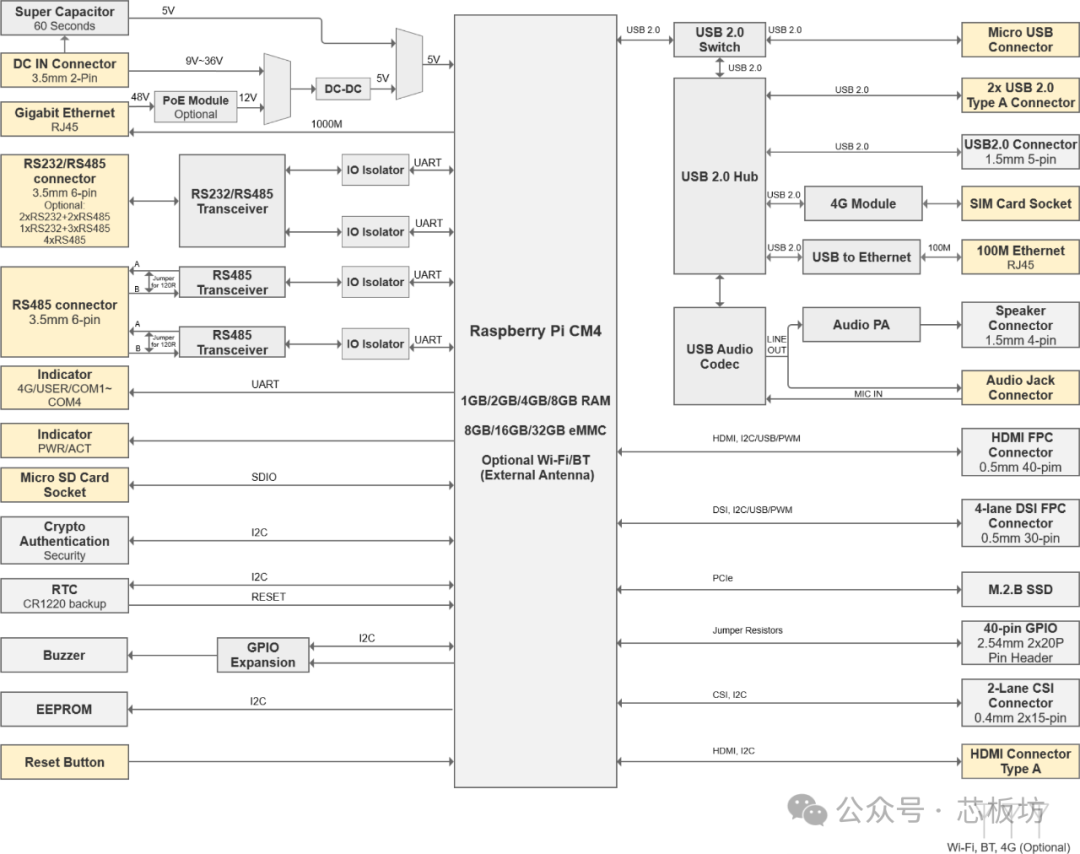
It comes with EEPROM, enhancing the system usability.
It has a security chip, improving system security.
It features a Watch Dog, based on RTC alarm functionality, implementing a hardware Watch Dog to ensure system reliability.
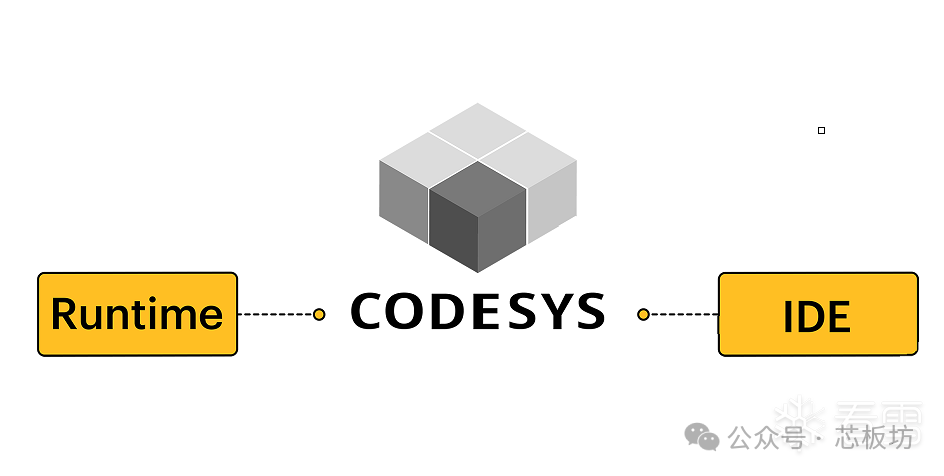
On the software side, the IPC2100 series supports CODESYS, which stands for Controller Development System. It is an integrated development environment for PLC (Programmable Logic Controller) applications. CODESYS is known as the Android of PLCs, and most domestic PLC manufacturers use the CODESYS kernel.
It is primarily used in the field of industrial automation.
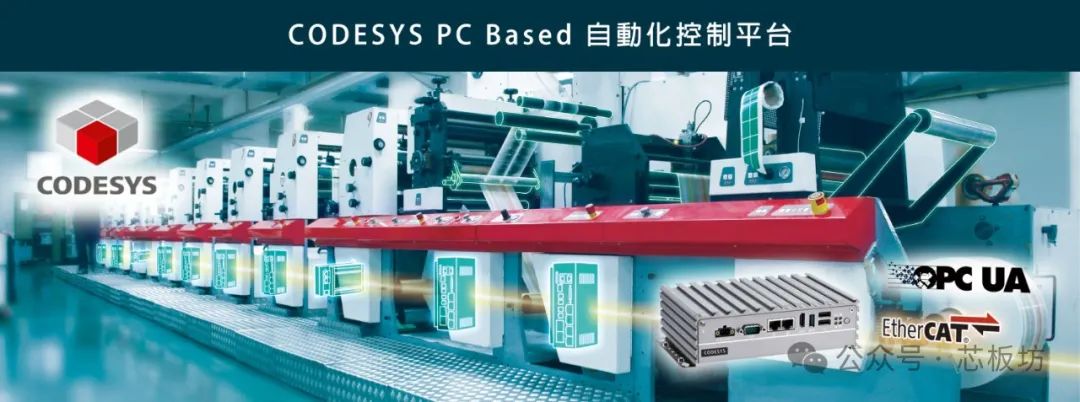
Additionally, Raspberry Pi has applications in smart factories, smart agriculture, green energy, and the Internet of Things.

Thus, it is no surprise that Raspberry Pi has significant industrial applications. No wonder the price of Raspberry Pi has remained high.
On the software ecosystem side, the IPC2100 series is built on the official Raspberry Pi system and comes with drivers for various modules, as well as some corresponding module APT libraries, essentially achieving plug-and-play functionality. Those familiar with Raspberry Pi can quickly get started.
The official also provides a Chinese manual, which is clear and easy to understand, making it quite user-friendly.
EDATEC also offers customization services, including software and hardware system customization, structure customization, manufacturing, and burning services, providing a one-stop service for industrial computers.

In terms of price, the IPC2110, 1+8G version is priced at 905.
The price with Wi-Fi module is 960.
The version with a 4G module, supporting 4G frequency bands in China, is priced at 1100.
Prices may vary in other regions, so choose according to your needs.
The price for the 2+8G version is 950.
This price reflects a discount of 10 yuan.
If you need other versions, you can consult customer service for more information.
Overall, in the field of industrial computers, if you happen to use Raspberry Pi, this is a very suitable option. This price is quite reasonable in the industrial sector. In most industrial scenarios, performance is not the primary concern; the key is how stable it is, and EDATEC has done quite well in this regard, making it worth considering.
However, if you think buying a Raspberry Pi CM4 board now is like joining the army in ’49, it’s simple: EDATEC will soon release CM5 industrial computers.
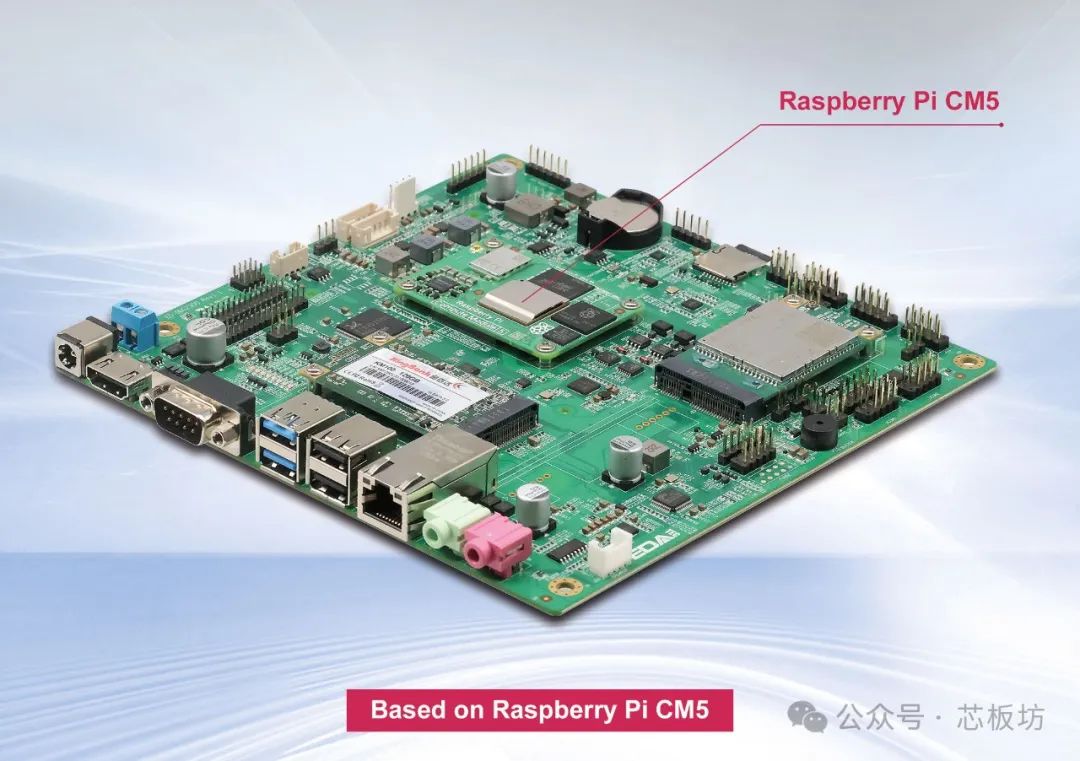
Stay tuned if you’re interested.
Visit our development board selection website; although it is not yet fully developed, we have already recorded over 500 development boards. If you are interested or have any needs, you can check out our selection website. You can also leave your suggestions in the group or message us.
Our website domain is: findboard.cn
(We have not yet adapted to mobile devices; if you are accessing via mobile, the experience might not be very satisfactory. We recommend using a desktop browser for access)












